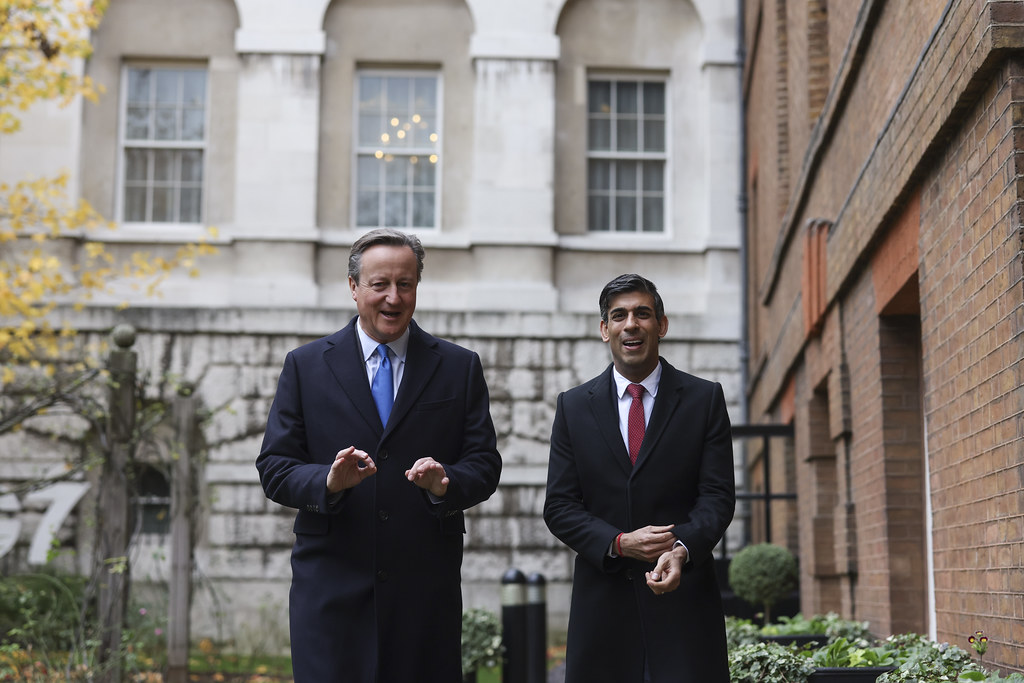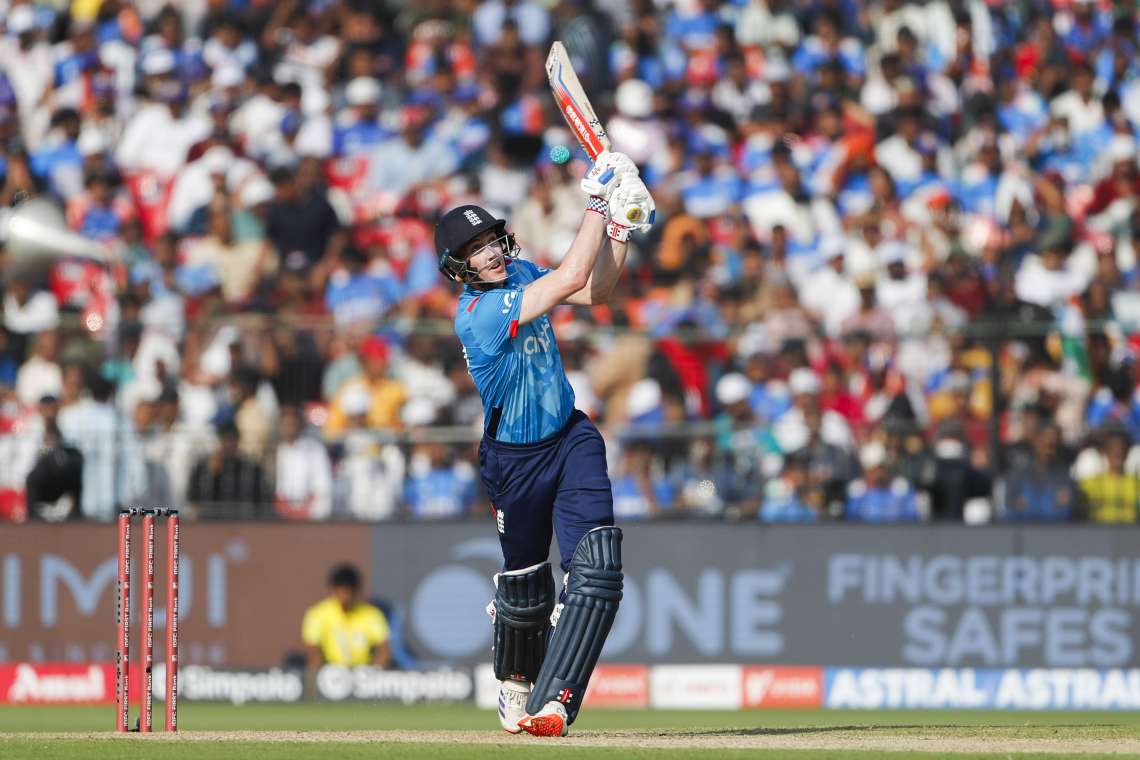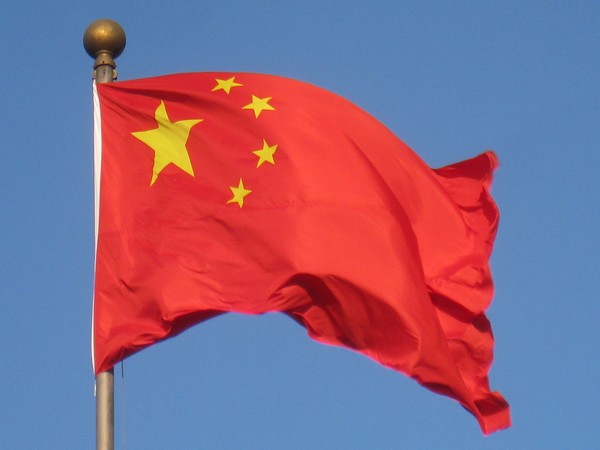The move comes amid increasing international scrutiny of violence against Palestinians in the Israeli-occupied West Bank…reports Asian Lite News
Foreign Secretary David Cameron said on Thursday that those responsible for settler violence against Palestinians would be banned from entering Britain, following a similar plan by the European Union.
UN figures show daily settler attacks in the Israeli-occupied West Bank have more than doubled since the Palestinian militant group Hamas’s deadly Oct. 7 attack on Israel from Gaza.
“Extremist settlers, by targeting and killing Palestinian civilians, are undermining security and stability for both Israelis and Palestinians,” Cameron said on social media site X, formerly known as Twitter.
“Israel must take stronger action to stop settler violence and hold the perpetrators accountable. We are banning those responsible for settler violence from entering the UK to make sure our country cannot be a home for people who commit these intimidating acts.”
On Monday, foreign office minister Andrew Mitchell told parliament that Cameron had discussed the issue of travel bans with his US counterpart last week.
While much international attention has focused on the cross-border assault and Israel’s subsequent war against Hamas in Gaza, European officials have also expressed increasing concern about rising violence against Palestinians in the West Bank.
Earlier this week European Union foreign policy chief Josep Borrell said he would propose sanctions against Jewish settlers responsible for violence against Palestinians in the Israeli-occupied West Bank.
Borrell did not say what the sanctions would entail but EU officials have said they would involve bans on travel to the EU.
The settlements are one of the most contentious issues of the decades-long Israel-Palestinian conflict. They are built on land captured by Israel in the 1967 Middle East War but which the Palestinians seek for a future independent state. They are deemed illegal by most countries but have consistently expanded over the years.
The move comes amid increasing international scrutiny of violence against Palestinians in the Israeli-occupied West Bank.
The EU’s top diplomat Josep Borrell said on Monday that he would propose sanctions on “extremist” Israeli settlers, while the United States last week moved to impose its own travel bans on settlers implicated in recent attacks on Palestinians. “As President Biden has repeatedly said, those attacks are unacceptable,” U.S. Secretary of State Antony Blinken said.
Cameron’s call for Israel to do more to stop violence by Israeli settlers will be seen as a rare rebuke of Prime Minister Benjamin Netanyahu’s administration from the U.K., which has stressed its support for Israel’s right to defend itself — while abiding by international law — following the deadly attacks by Hamas on Israeli civilians on October 7.
The U.K. this week teamed up with the U.S. to slap fresh sanctions on Hamas’ leaders and financiers in a bid to ensure the group has “no future in Gaza.”
Cameron described her opposition to a two-state solution in the Middle East as “disappointing”. He said he believes such an outcome remains possible but “very, very difficult” and suggested Israeli ambassador to the UK, Tzipi Hotovely’s comments should not have “too much weight” attached to them.
“I think it is still possible but I think the pathway from where we are today to getting there is very, very difficult,” the former prime minister told the the Lords European affairs committee on Thursday .
Cameron said the process would involve have to involve a “sustainable” ceasefire, where Hamas was not capable of attacks such as that it launched in southern Israel on October 7.
It would also include ensuring security and stability for Gaza and revitalising the Palestinian Authority. Asked about what should be done after Hotovely’s comments, Cameron said: “I don’t know, is the answer.
“I read the transcript and it is disappointing, but ultimately true security and stability for Israel, which is something I care deeply about. I believe in Israel as a homeland for Jewish people, I believe in its right to exist, to thrive, to defend itself and all the rest of it. Long-term security, I think, requires there to be a state for Palestine as well. So I don’t think we should put too much weight on one interview. We have to get on and think about how to help make this happen.”
British Prime Minister Rishi Sunak said of Hotovely’s comments: “We don’t agree with that. Our longstanding position remains that the two-state solution is the right outcome here. We will continue to support calls for a sustainable ceasefire where hostages are released, more aid can get in, and the rockets, crucially, stop being fired from Hamas into Israel as well.”
The announcement on visa curbs for Israelis involved in extremist violence comes after a letter backed by British MPs, the Council for Arab-British Understanding and the Balfour Project, which advocates for equal rights for Palestinians and Israelis.
The letter, addressed to Cameron and Home Secretary James Cleverly, said a ban should apply to “Israeli settlers who commit or incite crimes of violence and intimidation against Palestinians in the West Bank”.
It highlights the Israeli authorities’ actions, mentioning the arrest of more than 3,000 West Bank Palestinians since the Hamas attack and calls for more UK support for the West Bank Protection Consortium.














